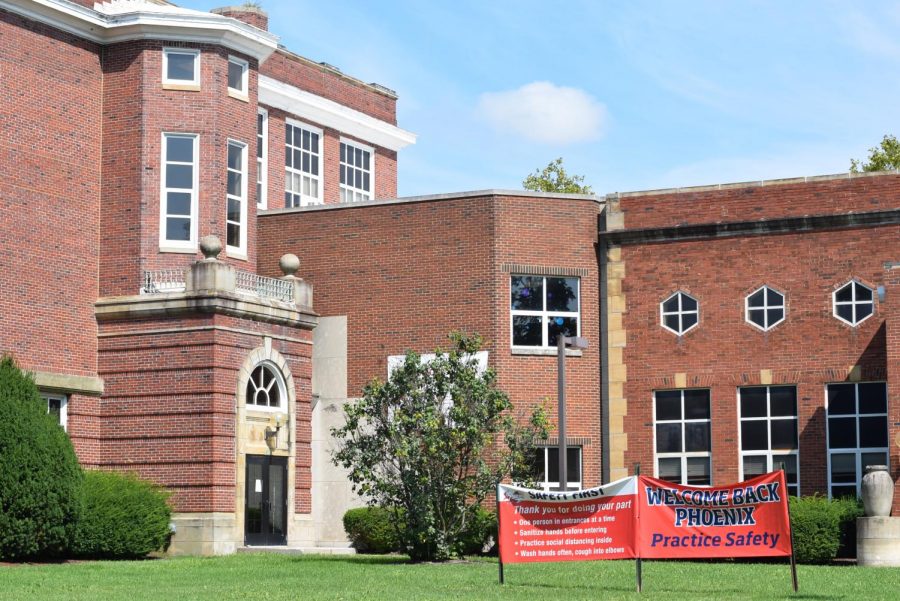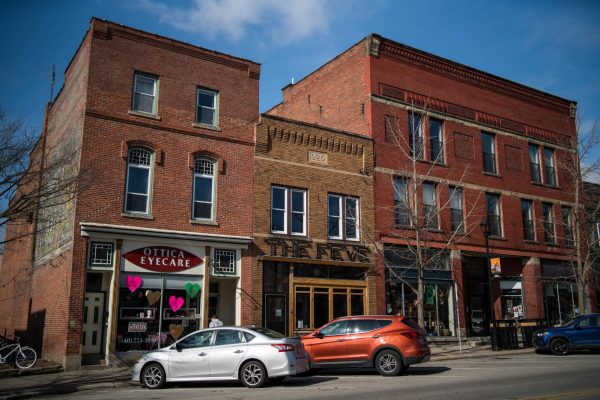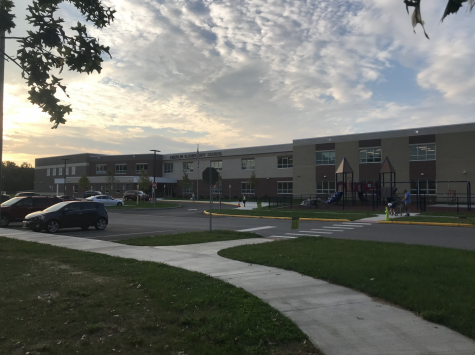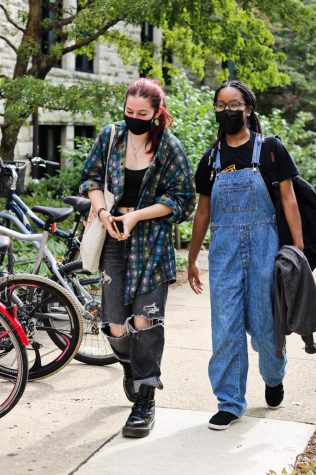Oberlin Schools Well-Prepared for Start of Online Classes
Oberlin City Schools will move to hybrid learning next January, after a fall semester of remote education.
Oberlin City Schools are welcoming students back to virtual classes this week as the school district reopens remotely. The district’s plan has all grades operating fully online until Nov. 6, when they will reassess next steps. OCS will provide technological support for families in need.
When OCS suddenly shifted to remote learning last March, both teachers and students were ill-equipped to handle an entirely-virtual learning environment. However, the summer recess provided the district with time to create a plan to meet student needs and comply with shifting Lorain County Public Health guidance.
The Oberlin City Schools Board of Education pushed the start of school from Sept. 1 to Sept. 8, allowing for an extra five days of professional development and technology training. Following this period of intensive professional development, the OCS community says it is ready to take on a prolonged period of virtual school this fall.
“Our teachers have been busy preparing and participating in training sessions over the summer,” IT/EMIS Coordinator Steve Nielsen wrote in an email to the Review. “An intensive two week professional development cycle unlike anything I have witnessed in my 15 years in public education. There is a strong understanding of the situation and what is at stake, and a commitment to make remote learning successful for all students.”
In the past two weeks, OCS teachers have attended training sessions in five core technologies that they will use to facilitate online learning this fall: Google Classroom, Screencastify, Zoom, Remind, and Kami. While apps like Google Classroom, Zoom, and Screencastify will provide both live and recorded online classroom spaces, Kami will allow for annotation of online documents, and Remind will help teachers and students keep track of assignments and deadlines.
According to Oberlin City Schools’ Superintendent David Hall, professional development will remain an integral part of OCS this year as administrators, principals, and teachers meet together regularly to monitor and adjust programs as necessary. The district has also been hosting Zoom workshops for families to learn about the various technologies their children will be using.
Another major change from last spring has been the ability to distribute technology to students and families equitably. According to Nielsen, last spring some students did not have access to internet or computers in their homes.
While the school district worked with the City of Oberlin and the Oberlin Cable Co-op to provide internet access to most of the students in need, certain restrictions blocked several families from receiving access. Many students who did not have access to computers were using phones or other smaller devices for their schoolwork.
“Since the initial closure, restrictions that prevented the district from providing internet access have been lifted and we have obtained hotspots from Verizon for those students who reside outside of the Oberlin Cable Co-op’s service area,” Nielsen wrote in an email to the Review. “The district has been awarded a grant from [the Ohio Department of Education] to cover six months’ worth of internet access and various community organizations are addressing other issues. The Oberlin Cable Co-op continues to be an amazing asset to the community as they bring more students online every day and take on all of the installation and administrative tasks involved in the process.”
Now, Nielsen says that OCS has successfully provided internet access to about 150 families and distributed over 700 laptops to students — a number that represents over 70 percent of the student population.
The inequalities in students’ access to resources, coupled with the sudden nature of school closing in the spring, meant that it was difficult for expectations to be enforced or attendence to be counted. This semester, teachers and administrators have been able to set clear goals for students in order to keep them engaged and on track in remote classes this fall.
“It’s not fair that kids got thrown into this COVID teaching environment, so we don’t want to penalize kids, but we obviously want to help them learn and want to hold them accountable,” said William Baylis, director of curriculum. “This fall, the idea of accountability with grades is transparent and in place from the beginning. Attending the Google Classroom sessions isn’t optional. It’s just like a regular classroom. If you don’t show up, we’re going to tally [absences] up, and then we’re going to work with the Lorain County attendance board.”
Hall also noted the importance of checking in with students and families if attendance begins to lag.
“We’re going to make home wellness visits if they’re not getting online,” Hall said. “So [we’ll do] home visits, we’ll have our business support team, and if a student hasn’t been reached in about a week or three or four days, the intervention team will start developing a plan. What’s going on? Do you have a computer? Do you have internet? What can we do to help you?”
As classes kick into gear, teachers will need to determine the gaps in learning among students. In addition to the usual summer slide, many students ended last year in different places academically because of missed classes or technological difficulties.
“It’s all over the place between those kids that did come — the 15 kids that would come into a particular teacher’s class — and those other 75 that did not,” Baylis said. “How we find out where kids are at when we come back is going to be the greatest challenge.”
In addition to the practical implications of remote learning, OCS administration and teachers are focused on the social and emotional impacts of distanced learning environments. The district worked to train teachers to facilitate supportive relationships with students during this difficult and confusing time.
As students, teachers, and families navigate online classes this fall, Baylis encourages the OCS community to remember that everyone shares the same goal of supporting students.
“We’ve got a great community — people care about their kids, people are passionate,” Baylis said. “I know a lot of people have opinions on ‘Should schools open, should schools go back in person?’ But at the end of the day, I just ask everybody to be kind. Be kind to one another, we’re all doing the best that we can. And obviously we’re going to make decisions that we think are best for kids, and it may not be perfect, but we’re going to try our best.”





